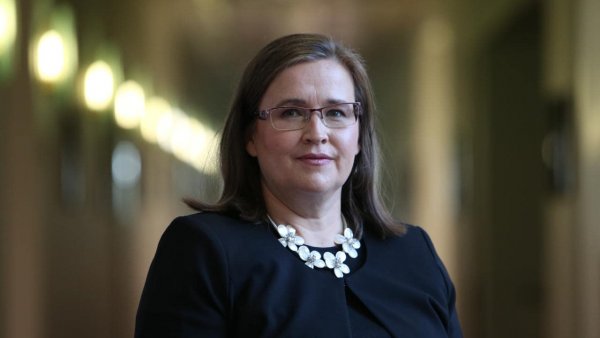Allegations of unlawful sexual harassment against retired High Court judge Dyson Heydon revealed last week are the most recent in a series of claims of sexual harassment against high-profile Australian men since #metoo was ignited as a global movement in October 2017.
Following claims of unlawful sexual harassment against a number of other high-profile Australian men, the allegations against Dyson Heydon eclipse them all in terms of the scale and longevity of his alleged predation, and the number of victims, witnesses and knowing bystanders.
These allegations are also unique in that the perpetrator, as a former Justice of the High Court, has been at the heart and pinnacle of the legal system, where responsibility lies for the final say on justice in Australia. In addition to the High Court investigation overseen by Chief Justice Susan Kiefel, the Heydon case has prompted a directive from the ACT Director of Public Prosecutions to the Australian Federal Police to investigate whether criminal charges should be laid, as well as an investigation into claims about sexual harassment during his time as royal commissioner into trade unions at the request of federal Attorney-General Christian Porter.

Chief Justice Susan Kiefel oversaw an investigation into Dyson Heydon.
Systemic sexual harassment is not unique to the legal profession or the judiciary – it crosses all varieties of Australian workplaces. Individual investigations and inquiries, such as those relating to Heydon, may be able to assist some complainants in holding individual perpetrators to account.
Only a government-lead policy response that includes both an overhaul of the regulatory framework and substantial law reform can effectively begin to tackle systemic sexual harassment.
Yet they are unable to effect the change that is needed to prevent, address and eliminate systemic unlawful sexual harassment. Only a government-lead policy response that includes both an overhaul of the regulatory framework and substantial law reform can effectively begin to tackle systemic sexual harassment.
A blueprint for such a response has already been devised by the Australian Human Rights Commission (AHRC). In March, as COVID-19 captured the nation’s attention, Sex Discrimination Commissioner Kate Jenkins launched the long-awaited Respect@Work report, commissioned in by then-Minister for Women Kelly O’Dwyer in June 2018 in the wake of the #metoo movement. Over the following months, the AHRC conducted 60 group consultations, received 460 submissions, and produced a final report of over 900 pages including research, analysis and recommendations.
In Respect@Work, the AHRC calls for significant changes to the way that sexual harassment is regulated, investigated and enforced at both an individual and systemic level. It recommends increasing the AHRC’s powers of investigation and enforcement, including through self-initiated inquiries regarding any aspect of workplace sexual harassment.
All employers will be required to ‘take reasonable and proportionate measures’ to eliminate sex discrimination, sexual harassment and victimisation from their workplaces.
Critically, it also recommends that employers be placed under a positive duty to eliminate sexual harassment, and that the AHRC be empowered to monitor and enforce compliance with the law. If this recommendation is implemented, all employers will be required to ‘take reasonable and proportionate measures’ to eliminate sex discrimination, sexual harassment and victimisation from their workplaces.
Under the current model, employers may be vicariously liable for sexual harassment perpetrated by their employees in limited circumstances. This can only be effective if victims make complaints about perpetrators, placing the regulatory burden on victims to take action. As decades of research by the AHRC – and the Heydon case – reveal, reporting of sexual harassment to employers is both rare and ineffective. Rather than allowing employers to take a box-ticking, compliance-based approach, the AHRC’s recommendations will require employers to take action to eliminate sexual harassment from the workplace.

Sex Discrimination Commissioner Kate Jenkins
This is not the first time that the AHRC has recommended to government that employers be placed under a duty to prevent sexual harassment. Twelve years ago, it recommended to a 2008 Senate Inquiry into the effectiveness of the Sex Discrimination Act 1984 that employers be legally required to avoid sexual harassment. That recommendation was echoed in different forms in 2011 and 2012.
Its necessity is backed by ample evidence of the systemic and endemic nature of workplace sexual harassment and the limited effectiveness of the current regulatory model, revealed most recently in the 2018 report Everyone’s Business: Fourth national survey in sexual harassment in Australian workplaces. The consistent failure of the federal parliament to amend the legislation to shift the burden from victims to employers has arguably allowed alleged perpetrators like Heydon to flourish.
How would or could an employer respond to an alleged serial perpetrator of such power and privilege?
Yet the Heydon case casts doubt on whether placing employers under a positive duty to ‘take reasonable and proportionate measures’ to eliminate sexual harassment is a sufficient response to the depth, scale and systemic nature of the problem. How would or could an employer respond to an alleged serial perpetrator of such power and privilege?
Arguably additional law reform is required to make perpetrators personally liable, and subject to law enforcement not only by complainants, but by the AHRC itself. Although victims have limited common law rights, the data reveals the laws are rarely used and when they are, legal action results in the settlement of complaints with non-disclosure clauses that prevent them from speaking publicly about the harassment, the perpetrator or the employer.
Victims have effectively been paid for their silence with few consequences for perpetrators or their employers. The possibility of public investigation by a federal government agency, enforcement through the judicial system and a finding of unlawful sexual harassment, by contrast, could have serious professional consequences for perpetrators and provide the deterrent that is currently lacking.

Dyson Heydon, centre back, in 2012 with fellow High Court judges
The Respect@Work inquiry is without doubt the most comprehensive state-initiated response to the #metoo movement across the globe. It is of paramount importance that Commonwealth, State and Territory governments implement its recommendations, not after they have addressed the current health and economic crisis, but as a key component of their response to it.
The Dyson Heydon case has shone a new light on the scourge of workplace sexual harassment in Australia as a form of systemic gender-based violence. Legislative reform to increase the responsibilities of employers with regard to unlawful sexual harassment, to hold perpetrators to account, and to empower the Human Rights Commission to investigate and enforce the law, is the only effective response.




